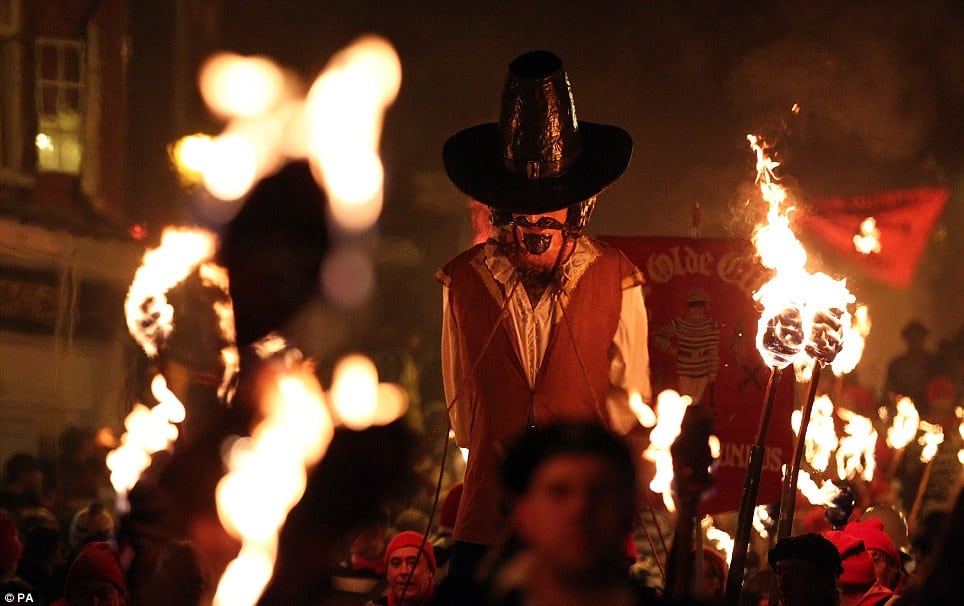Interviewer: So why do you celebrate Guy Fawkes Night?
Informant: It was a big part of my childhood. I remember going to Bonfire Night Parties. So the month prior to the 5th of November, the actual date, families and friends would gather old furniture and sweep up leaves, a lot of fallen leaves, and anything else that could be burned. And we would stack it into a huge bonfire. And then on the night of the 5th of November the community would come together and there would be fireworks and we would light the bonfire. But also during the month prior children would build a ‘Guy’ and a ‘Guy’ consisted of old clothes, that were stitched or pinned together and stuffed with newspaper and leaves to resemble a person. The ‘Guy’. Guy Fawkes. This ‘Guy’ would be carried around the community in a wheelbarrow or old pram, going door to door begging for pennies. “Penny for the Guy”. These children would then take these pennies and purchase fireworks.
Interviewer: That’s kind of irresponsible.
Informant: I know! I was wuss and I hated loud fireworks, so I always purchased sparklers. There was always traditional food served at bonfire night parties: mugs of soup, oxtail, or tomato soup, and sticky Parkin Cake (Ginger cake). Adults always lit the fireworks and the bonfire, but you could throw things on the fire, basically we were pyromaniacs for a night and it was socially acceptable. Another thing that was a tradition, the dummy you made, you would always put a mask on it of a political figure. Typically one you disliked. Part of my memory of the thing, is that you stood as close as you could to the fire so your face was almost blistering and your back was wet and freezing, cuz this is England! Guy Fawkes night was THE THING for us, Halloween was ‘eh’ but Bonfire Night was it, cuz it had fire!
Context: An earlier conversation that was discussing a different English Tradition made my informant remember this part of her childhood.
Background: The informant learned the tradition from her community, there was no one person who taught her about it. She enjoys it because it’s fun. “It only gets remembered if it’s fun”. To her it’s a little “encapsulated perfection” part of her childhood and it captured what it was like to grow up in rural England.
Thoughts: It sounds like a very interesting holiday, the informant seemed to go back to the high energy and joy of that holiday. I personally wish to be able to go to her home town to see this tradition myself.

